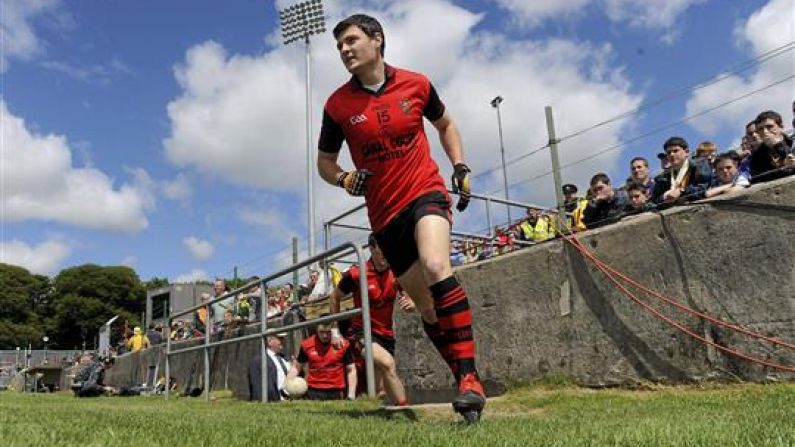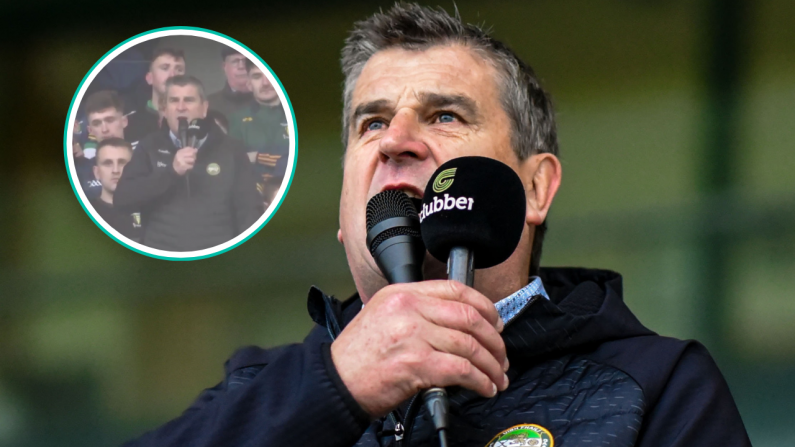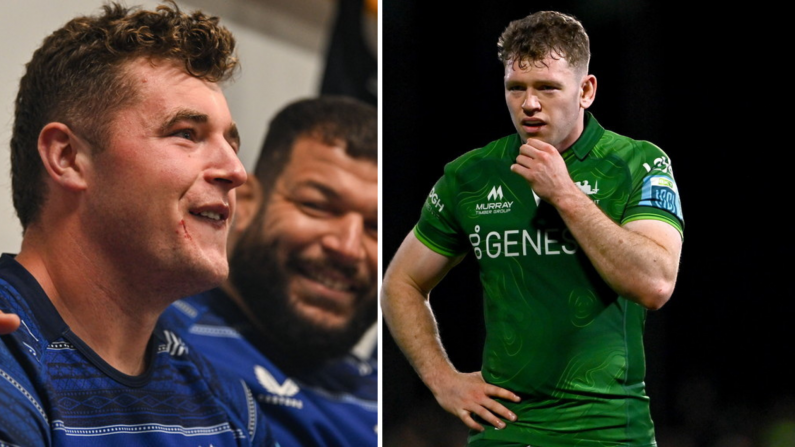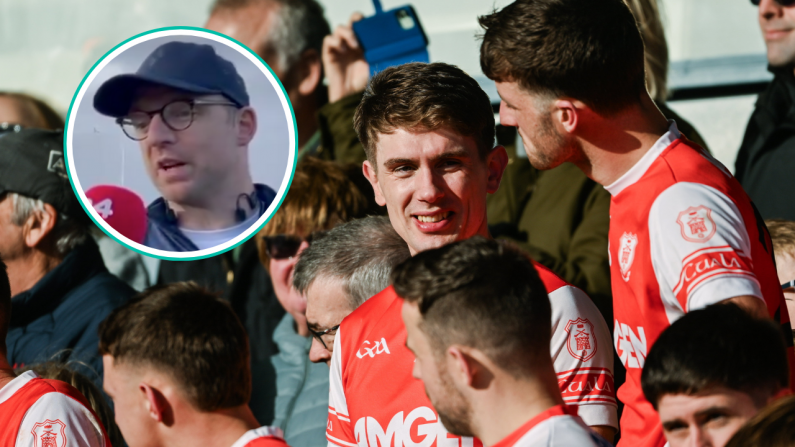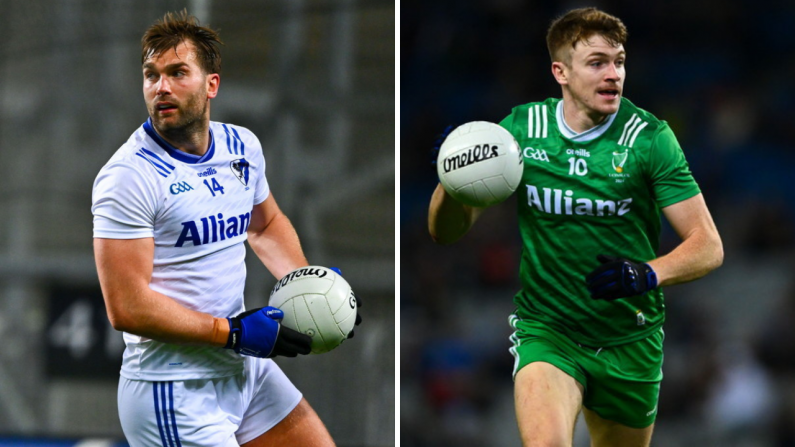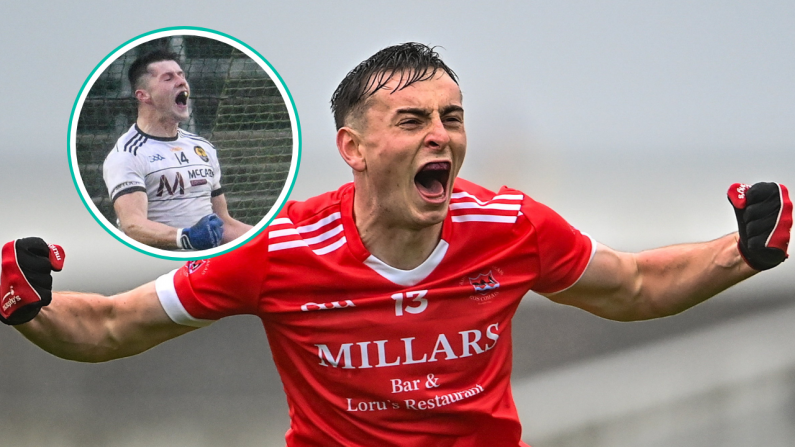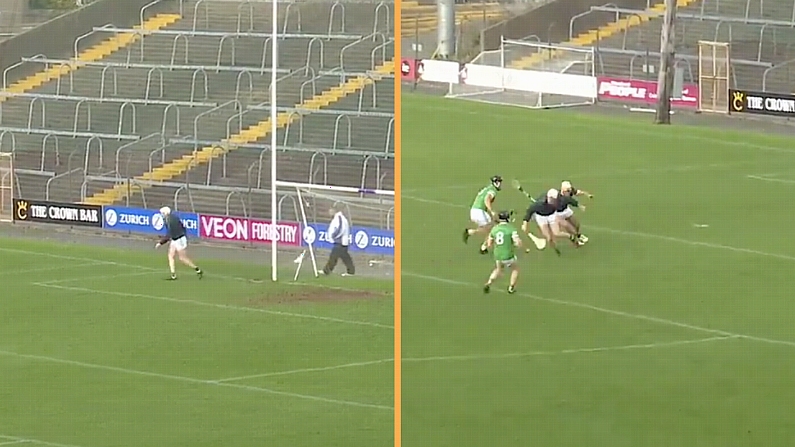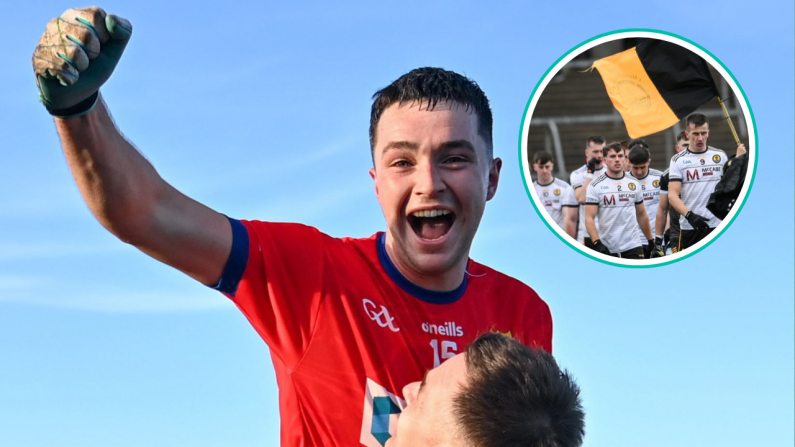He only played two seasons at senior inter-county level for Down and yet he is mentioned in the same breath as men who have won two All-Irelands. Former Down goalkeeper Michael McVeigh once skipped work in order to watch him play in a schools match. And if he broke Down fans’ hearts by leaving aged eighteen to pursue a career in Australian rules football with Collingwood F.C., he made them soar in 2010 by acting as the pivot on a Down team that nearly won the All-Ireland under James McCartan.
Utter the name of Martin Clarke to anyone who associates themselves with the great footballing domain of county Down and one will probably be greeted with something halfway between a grimace and a smile. For while starring on an All-Ireland minor winning side in 2005 and then nearly doing the same at senior level five years later (winning an Allstar in the process) are mightily impressive achievements to come out of any career, there is always the nagging feeling that, even though Clarke is still only thirty, Gaelic football might have missed out on a truly outstanding talent.
After Clarke gave up his successful early progress in the Australian Football League to come back to Ireland and play for Down in 2010 and 2011, he returned to Australia and went back to Collingwood. His second spell in Australia failed to pick up from where he had left off and after being diagnosed with Addison’s disease he returned to Ireland towards the end of 2014, vowing to fight for a place in the Down team in 2015. Clarke missed that campaign, however, and the following year his absence from the county set-up made headlines after former Armagh forward Oisin McConville - sitting alongside Clarke in the BBC NI studio - heavily criticised Down boss Eamonn Burns for not approaching Clarke and asking him to join the panel.
He said that Benny Coulter had opted out and that Dan Gordon had opted out and that there wasn't much he could do about that. And he said he hadn't been talking to Martin Clarke. And I find that astounding!
You have to get your best players on the field and use them to the best of their ability. For this man (Clarke) to be sitting up here today having not been asked or approached, and I know I'm putting him in an awkward position, but I find that astounding.
During that 2010 season, Conor Deegan (who won two All-Irelands with Down) was asked about Clarke, and his response elucidated just how highly Clarke was (and is) thought of in Down:
In a lot of ways, he is very like the way Greg Blaney used to be for us. Greg was like that, he was the fulcrum of everything. He got his hands on the ball, people looked for him. Marty has probably a bit more guile to his game than the likes of Greg did but in a lot of ways, they are similar.
Blaney won three All Star awards with Down as well as two All-Irelands, and is generally acknowledged to be one of the greatest players ever to emerge from Ulster. Another former team-mate of Blaney’s told Balls.ie that it is a nonsense that Clarke should be spoken of in the same breath as the former Carryduff man, but in 2010 there was a consensus, echoed by Down stalwart Benny Coulter, that Clarke was the first time Down came close to emulating Blaney’s brilliance around the opposition '45.
Blaney himself modestly laughs off any such grand comparisons, preferring to talk about the quality Clarke brought to Down, but he says he can see how the two of them may have had stylistic similarities:
I suppose one of my strong points as a player is that I would have been a good passer of the ball. I would have been aware of what was going on around me. And Marty Clarke would have been an excellent passer of the ball, very aware of what was happening around him. He could see a pass very quickly and read a pass.
I suppose, if there’s fifteen players in a team, you divide a team into thirds. In a good team you’ve maybe four or five very, very good footballers, four or five good footballers and four or five steady players. Clarke would have been in the top end.
Blaney picks Clarke and Coulter out as the two “standout players in Down over the last twenty years” and he says that while one “couldn’t fault” Clarke for grabbing the chance to make a go at professional sport, it is a pity “from a purely selfish Down point of view” that the county has only got two years out of the An Riocht man at senior level.
Blaney says the first time he noticed Clarke - “he was a star, a real talent” - was when he played for St Louis, Kilkeel in the school’s two runs to the MacRory Cup final in 2005 and 2006 (in 2005 the school was defeated after a replay by Omagh CBS, while a year later a last-minute goal from Abbey CBS cruelly snatched victory away from Clarke’s side).
In all three of those games, Clarke was simply immense. In games littered with future county stars he was the outstanding player on the pitch and his play had a maturity, class and understanding that meant any effort to curb his influence on the game was a matter of damage limitation. On the pristine Casement Park surface, Clarke struck '45s over the black spot with ease, the ball rising as it split the posts. He collected breaks in his own defence and appeared, seemingly seconds later, to split the opposition’s rearguard with a perfectly weighted pass. By the end of both finals spectators of all ages were nodding in agreement that Down (and Gaelic football) had been gifted a truly special individual talent.
Niall McAleenan and Steven McVeigh, teachers at St Louis, were the team’s managers on those occasions and both speak of Clarke in glowing terms. McVeigh says that when Clarke was coming to the school, his brother John - himself a fine footballer - warned McVeigh of the talent that was about to arrive through the doors:
As he proved throughout his career, John was an exceptional talent as well...John would always tell us, ‘You haven’t seen anything yet, wait 'til you see our fella coming along'.
He (Martin) brought with him quite an advanced package of fielding, soloing, speed, agility...but he also had ability, and if there’s one thing I remember that stands out with Martin (it) was his ability to see things that other people wouldn’t.
McVeigh speaks of a player who once scored 2-16 in a schools championship match, who would bet team-mates “twenty quid of my Confirmation money” to catch him during sprints at training, who in a MacRory final once ran over a ball and back-heeled it up into a team-mate’s chest to set up a point. McAleenan describes him as “the best player I’ve seen playing colleges football”. But there is something else that is striking about his former mentors’ descriptions of Clarke.
Oftentimes gifted young sportspeople can struggle to cope with the responsibility that may come with such talent, even in the GAA’s amateur environment. School, club and county colleagues and managers often lean on them to produce results and lead a team to success and sometimes this proves too much to deal with for those in their late teens. But Clarke seems to have shouldered the attention his talent received with the same ease with which he slotted '45s. Even on extremely high-quality St Louis and Down teams, he stood out as a leader - as McAleenan outlines:
When Martin was in school, my impression was that he was a role model to the rest of the fellas, that he was a very mature lad for his age. I remember before the (2006) MacRory final Martin speaking to the lads up in my classroom for about thirty minutes, just letting the fellas who weren’t involved the year before know just what to expect in a MacRory final, what to do. And for a young fella of that age to be able to do that and for the fellas to take on board what he was saying gives a sense of how they would have held Martin...he was the type of lad who let the football do the talking, he wasn’t a real speaker beforehand in the changing rooms before a game but when he did speak then, the fellas did listen.
Balls.ie remembers being on the pitch after that crushing loss for St Louis in 2006. Amidst devastated team-mates and jubilant opponents, Clarke had an almost uncanny serenity. He patted his colleagues on the back and shook hands with Abbey players, departing the pitch calmly and without fuss. And before McVeigh and McAleenan could suggest it, he was standing in the middle of the winners’ dressing room, congratulating them on victory and wishing them well on their quest to win the national title.
The captain of that Abbey side was Kevin McKernan, who had played with Clarke for Down when winning an All-Ireland minor title the summer before and who would also link up with him in 2010, when McKernan was widely considered unlucky not to land an All Star award for outstanding displays from centre-back. The Burren man knows all about Clarke’s abilities, and the frustrations that accompany any discussion about his career:
It’s probably disappointing from a Down perspective that we didn’t see more of him in a Down jersey. I think the glimpses we got of him in 2010 probably left everybody with that question of, what if we had got the full lifespan of Marty Clarke in terms of his footballing career.
You would have seen things he was doing at training that you were just flabbergasted by, in terms of ability...that no-one else could see.
In terms of runs that he was seeing, that no other boys were seeing, he was a step ahead of everybody and I suppose you don’t get too many players like that – where a ball is put on your plate…in terms of kicking into space and kicking over your shoulder he was seeing things that no-one else was seeing and it was just a privilege to be part of.
Like anyone who has operated alongside someone truly remarkable at their craft, McKernan, McAleenan and McVeigh retain moments of brilliance, flashbacks of magic that illustrated Clarke’s ridiculous ability. As well as that back-heel, McVeigh recalls a point Clarke scored over his shoulder from near the sideline forty-five yards out. McAleenan remembers a teenage Clarke scoring a fifty yard winning point in a senior club championship game against Burren. And McKernan picks out a passage of play from that victorious minor campaign:
It was an All-Ireland quarter-final down in Carrick-on-Shannon and I think he won the ball deep in defence, gave two or three one-twos and put the ball over the bar…from one hundred yards down the field, all of a sudden he was up the other end kicking the ball (over)…I suppose just different things like that, it was just out of the ordinary what he was doing.
There’s a certain level of mystery about Addison's disease, the condition Clarke suffers from, but unfortunately it caused it him to have to call it a day with football altogether last March at the age of just thirty.
While it's a terrible loss to the game, at least those of us privileged enough to witness him in his spellbinding pomp will allow ourselves to daydream...to remember a score, a pass, a piece of skill; a moment from Martin Clarke that took the humble game of Gaelic football and elevated it to regal majesty.

